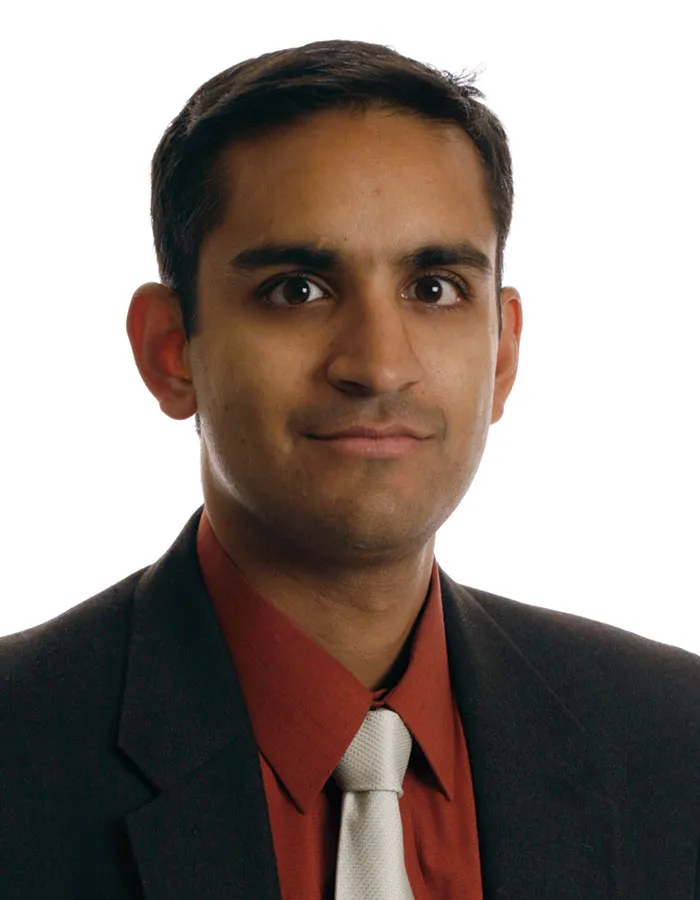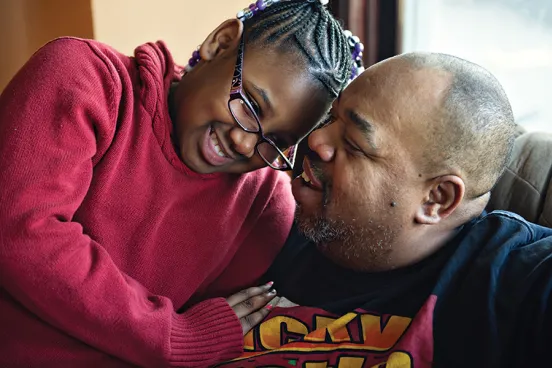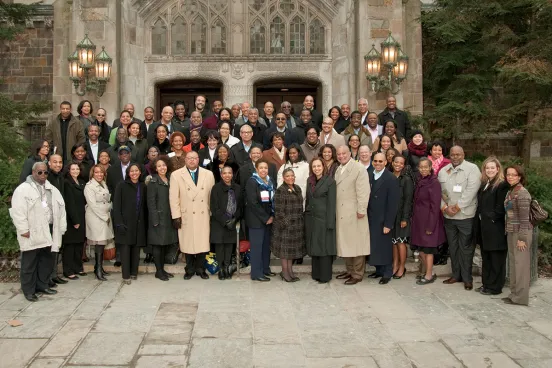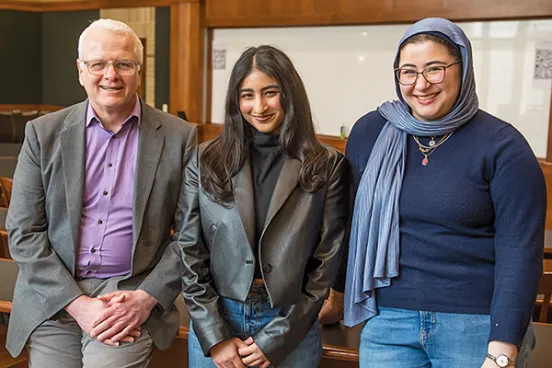
Not long after Vivek S. Sankaran, ’01, arrived at Michigan Law in 2005 as a faculty member, he came across the state’s one-parent doctrine, established by In re CR, 250 Mich. App. 185 (2001). The doctrine states that the court gets jurisdiction over a child based on the finding that one parent is unfit.
According to the doctrine, the presumptively fit non-offending parent still must undergo drug testing, counseling, and state-supervised parental visits, among other things, to prove his or her worthiness. The doctrine’s intent is to give courts broad authority to keep a child away from bad parents.
Sankaran, a clinical professor of law in the Child Advocacy Law Clinic and director of the Detroit Center for Family Advocacy, couldn’t believe such a practice existed.
“My initial reaction was that this is insane, this idea that you can take children away from both parents based solely on findings against one,” he says. “This process bypasses the notion that in order to take my kid away, you first have to show that I did something to my child.”
Sankaran has written bar journal and law review articles arguing against the doctrine, and he began looking for opportunities to challenge it in the appellate system. He developed a network of attorneys across the state that do this work, and through it was able to identify cases like In re Sanders, Minors, which he challenged in front of the Michigan Supreme Court in November.
“We’ve been making progress incrementally until we got to this point in the Sanders case, where the Court actually took the case and explicitly wanted to address this issue,” he says.
The Sanders case involves a mother who had her children taken away after she tested positive for cocaine. The children were placed with the father. But while he was on probation for domestic violence, he tested positive for cocaine. The children were placed with an aunt, and the father requested a jury trial to fight the allegations.
Eventually the mother pleaded no contest to the charges against her; the charges against the father were later dropped, and he never had a trial. But the court imposed the one-parent doctrine to keep the children with the aunt and made the father comply with provisions such as parenting classes, random drug tests, and a psychological exam.
The court said that, due to the mother’s no-contest plea, it had the jurisdiction to institute the one-parent doctrine. The Court of Appeals denied the father’s appeal and the Michigan Supreme Court granted leave.
“To make this father use services is a shifting of the burden, to say that rather than us having to prove you’re an unfit parent, you now have to prove that you are a capable parent by jumping through these hoops,” says Sankaran, who filed the application with the Michigan Supreme Court in February 2013.
“The Michigan Supreme Court crafted an issue they wanted addressed, and it’s incredibly broad,” Sankaran says. “Basically, does the one-parent doctrine violate the constitutional rights of unadjudicated parents? So it’s not about this case in particular; it’s about the far-reaching consequences of the doctrine.”
Sankaran made two main arguments in front of the Supreme Court: First, as a matter of constitutional law, a parent must have a hearing to be found unfit before a child is taken away, and a trial is the way to do that in Michigan. Second, under the Equal Protection Clause, similarly situated people must be treated similarly.
“If you create a system where you afford one set of similarly situated people all these procedural rights and the second set with nothing, that violates that basic notion of the Equal Protection Clause,” Sankaran says. “Here we have the mom who has all the rights in the world, and the dad gets nothing.”
One of the arguments made by a Jackson County prosecutor in front of the state Supreme Court in favor of the earlier Sanders decision was that the case was moot because the father eventually was incarcerated, showing him to be an unfit parent. Sankaran rejects that argument because it ignores the precedent of the Michigan Supreme Court that simply because a parent is incarcerated doesn’t mean he or she loses the right to plan for his or her child’s day-to-day decisions.
Sankaran says he has advocated against the doctrine in order to get better decision-making in these cases by having the court prove that these parents have done something wrong. But he has one ultimate goal.
“My hope is that the one-parent doctrine gets overruled by the Michigan Supreme Court and that we have a system where both parents are entitled to a trial against them before the court can take the child away from both parents,” he says. “If the court overrules, then it will pave the way to legislative efforts to craft a statute that is consistent with the court’s ruling.”







